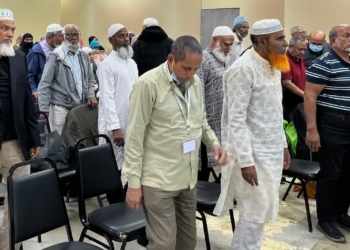“In a world of conflict and division, peace and cooperation are essential for the well-being of all humanity.”
In today’s interconnected world, global peace and cooperation are essential for the well-being of all humanity. Conflict and division can have devastating consequences, leading to human suffering, economic hardship, and environmental degradation. However, when nations and individuals work together in harmony, we can achieve great things, such as promoting sustainable development, protecting human rights, and addressing global challenges like climate change.
The Enduring Toll of Conflict
Conflict stands as a formidable adversary to progress and prosperity. It diverts precious resources away from essential services and infrastructure, disrupting the smooth flow of trade and commerce, and impeding economic growth. Moreover, conflict often serves as a breeding ground for human rights violations, displacement, and the tragic loss of life. A recent World Bank study estimated that the global cost of conflict in 2019 amounted to a staggering $14.4 trillion, equivalent to 1.5% of global GDP. This staggering figure underscores the profound economic and social devastation caused by conflict.
Negative Peace vs Positive Peace
Negative peace and positive peace are two different concepts of peace, proposed by Norwegian sociologist Johan Galtung.
Negative peace is defined as the absence of direct violence. It is often associated with the cessation of armed conflict, the removal of weapons, and the establishment of order and security. Examples of negative peace include the end of a civil war, the withdrawal of troops from a contested territory, or the establishment of a ceasefire agreement.
Positive peace, on the other hand, is a more comprehensive concept that goes beyond the mere absence of violence. It is defined as the presence of the conditions that make peaceful and successful lives possible. These conditions include good governance, economic equity, social justice, human rights, environmental sustainability, and a culture of tolerance and non-violence. Examples of positive peace include countries with strong democratic institutions, low levels of corruption, equitable distribution of wealth, and a strong commitment to human rights.
The Synergistic Power of Cooperation

In stark contrast to the destructive forces of conflict, cooperation emerges as a powerful catalyst for positive change.When nations and individuals unite in pursuit of shared goals, they unveil a wealth of benefits that transcend political and geographical boundaries. International collaboration has played a pivotal role in eradicating smallpox, curtailing the spread of HIV/AIDS, and expanding access to education and healthcare. These achievements serve as testaments to the transformative potential of cooperation.
Resounding Examples of Global Unity
Throughout history, humanity has witnessed inspiring instances of global cooperation that have yielded remarkable outcomes. The establishment of the United Nations in the aftermath of World War II marked a watershed moment in international relations, providing a platform for nations to address global challenges and promote peace and security. This landmark institution has facilitated dialogue, mediation, and peacekeeping initiatives, laying the foundation for a more stable and interconnected world.
Other notable examples of successful global cooperation include the formation of the World Trade Organization (WTO) to promote free trade, the creation of the Intergovernmental Panel on Climate Change (IPCC) to assess the risks and mitigate the impacts of climate change, and the adoption of the Sustainable Development Goals (SDGs) to address global challenges and promote sustainable development. These initiatives demonstrate the capacity of nations to collaborate effectively on issues of shared concern, paving the way for a more prosperous and equitable future.
The Individual’s Responsibility in Global Peace
While governments and international organisations bear immense responsibility for promoting global peace and cooperation, individuals also play a crucial role in these endeavours. Every person has the power to contribute to a more peaceful and harmonious world by engaging in the following actions:
- Education and Awareness: By deepening our understanding of global issues, we can make informed decisions and take meaningful actions to promote peace and cooperation.
- Civic Engagement: Participating in elections, volunteering time to community organisations, and advocating for policies that support peace and cooperation are all ways to contribute to a more harmonious society.
- Promoting Dialogue and Understanding: Engaging in respectful conversations with people from diverse backgrounds and cultures fosters understanding and tolerance, breaking down barriers that fuel conflict.
- Supporting Peacebuilding Efforts: Donating to organisations working to build peace in conflict-affected areas and advocating for peaceful resolutions to conflicts demonstrate our commitment to a world free from violence.
Institute of Economics and Peace (IEP) and its role in promoting positive peace
The Institute of Economics and Peace (IEP) is a global think tank dedicated to advancing understanding and promoting the conditions for positive peace. Founded in 2007, the IEP is headquartered in Sydney, Australia, and operates with a global network of researchers and partners.
The IEP’s mission is to create a world where economies flourish and individuals thrive in peaceful societies. The institute’s work focuses on three main areas:
- Research: The IEP produces a number of reports and analyses on peace and conflict, including the Global Peace Index (GPI), the Global Terrorism Index (GTI), and the Ecological Threat Report (ETI). These reports are used by governments, policymakers, researchers, and the media to understand the key drivers of peace and conflict, and to identify effective peacebuilding strategies.
- Education: The IEP provides education and training on peace and conflict to a wide range of audiences, including government officials, civil society leaders, and young people. The institute’s educational programs aim to promote understanding of the causes and consequences of conflict, and to develop the skills and knowledge needed to build peace.
- Outreach: The IEP actively engages with governments, civil society organisations, and the media to promote its research findings and recommendations. The institute also works to build partnerships with organisations that share its mission to promote positive peace.
The IEP’s Role in Promoting Positive Peace
The IEP plays a critical role in promoting positive peace by providing evidence-based research, education, and outreach. The institute’s work helps to:
- Raise awareness of the importance of peace: The IEP’s reports and analyses are widely covered by the media, helping to raise public awareness of the importance of peace and the challenges that peacebuilders face.
- Identify effective peacebuilding strategies: The IEP’s research provides evidence on what works and what doesn’t in peacebuilding, helping to inform the design and implementation of effective peacebuilding programs.
- Build capacity for peacebuilding: The IEP’s educational programs provide individuals and organisations with the skills and knowledge they need to build peace in their communities.
- Mobilise action for peace: The IEP’s outreach work helps to mobilise action for peace by advocating for policies and programs that promote peace, and by connecting peacebuilders with one another.
The IEPs work has made a significant contribution to the field of peacebuilding and has helped to advance the understanding of the conditions for positive peace. The institute’s work is more important than ever today, as the world faces a number of complex and interconnected challenges that threaten peace and security.
Here are some specific examples of how the IEPs work has promoted positive peace:
- The Global Peace Index (GPI): The GPI is the world’s leading measure of peacefulness, and it is used by governments, policymakers, and researchers to track progress towards peace. The IEP’s research on the GPI has helped to identify the key drivers of peace and conflict, and to inform the design of effective peacebuilding strategies.
- The Global Terrorism Index (GTI): The GTI is the world’s leading measure of terrorist activity, and it is used by governments, policymakers, and researchers to understand the trends and patterns of terrorism. The IEP’s research on the GTI has helped to identify the root causes of terrorism and to develop effective counterterrorism strategies.
- The Ecological Threat Report (ETI): The ETI is the world’s leading measure of ecological threats, and it is used by governments, policymakers, and researchers to understand the links between environmental degradation and conflict. The IEP’s research on the ETI has helped to raise awareness of the need for sustainable peacebuilding, which takes into account the environmental dimensions of conflict.
The IEPs work is making a real difference in the world, and the institute is a leading voice in the global movement for peace.
A Collective Responsibility for a Shared Future

Peace and cooperation are not mere aspirations; they are indispensable pillars of a sustainable and just world. By working together, individuals, communities, nations, and international organisations can create a future where all people can thrive in peace and harmony. As we navigate the challenges and opportunities of the 21st century, let us reaffirm our commitment to global peace and cooperation, ensuring that the world we leave behind is one that is more peaceful, just, and equitable for all.











